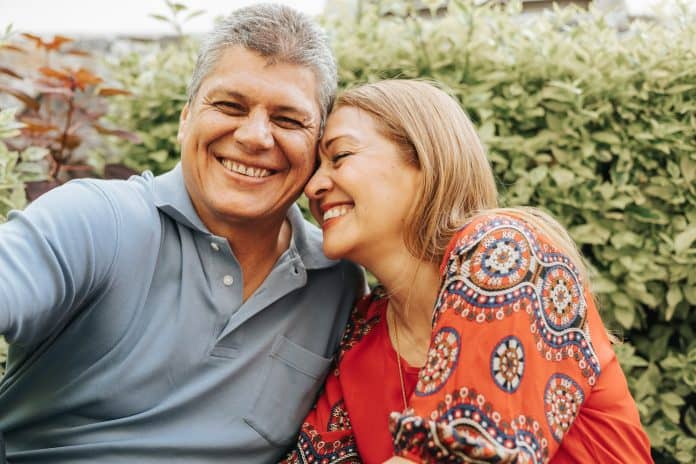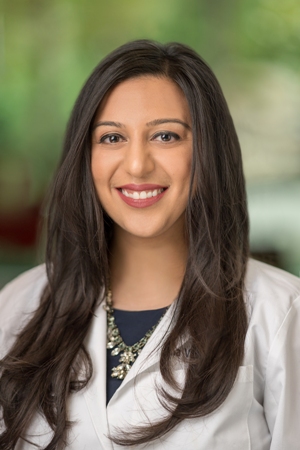Actor Chadwick Boseman’s death four years ago from stage IV colon cancer at age 43 illuminated a disturbing trend: Colon and rectal cancers in adults age 49 and younger have been on the rise for the past decade.
In its 2024 Cancer Facts & Figures, the American Cancer Society reports that colorectal cancers now kill more men under age 50 than any other cancer. Furthermore, colorectal cancer is the second deadliest for women under age 50, behind breast cancer.
CentraState Medical Center’s chief of gastroenterology, Tina Vazirani, M.D., has witnessed these rising cancer rates in her own practice and urges her patients of all ages – starting at age 45 and even earlier for those with specific concerns, risk factors or symptoms – to take proactive steps to prevent colorectal cancers.
“Research is showing that the three biggest influencers of colorectal cancer in younger adults are obesity, lack of physical activity, and increased alcohol use,” she explains. “The good news is that these three risk factors can be modified with healthy lifestyle changes at any age.”
Lowering Your Risk
Although some people are at risk for colorectal cancer due to genetics, all of us can reduce our risk with simple lifestyle changes:
- maintaining a healthy body weight and BMI (body mass index) of under 25
- eating a high-fiber, low-fat diet rich in fresh fruits, vegetables, and fish; limiting red meat (beef, pork, lamb); and avoiding ultra-processed foods, such as frozen pizza, cookies, and chips
- cutting back on alcohol, and stopping smoking and other tobacco use
- engaging in regular physical activity every day
Our Healthy Gut Microbiome
Research is also pointing to maintaining a healthy gut microbiome as a way to curb your risk of colorectal cancer. Your gut microbiome contains trillions of bacteria, viruses, and fungi that intermingle with the cells living in our stomach and intestines. These microorganisms are influenced by what we put into our body and what we do with it.
Scientists surmise that an unhealthy microbiome leads to inflammation and hastens the development of cancer. You can boost your microbiome’s health by:
- reducing stress
- following a plant-based vegan, vegetarian, or pescatarian diet
- eating foods with probiotics (yogurt, cottage cheese, olives, and fermented foods such as kimchi, pickles, and vinegar)
Screening Starts at 45
One of the smartest preventive steps you can take is to follow the recommendation of the American Cancer Society and have your first colonoscopy at age 45 if you are at average risk.
If you have a genetic predisposition to colorectal cancer, a family history of colorectal cancer, or a personal history of any cancer, your doctor will advise you as to your best screening schedule.
Although there are other colorectal cancer screening methods, such as a fecal occult blood test, the gold standard is a colonoscopy, says Dr. Vazirani.
“This is because a colonoscopy is not only a diagnostic tool, but a treatment method as well,” she adds. “During the procedure we view the inside of the colon and rectum, identify changes in their tissue, and remove any growths called polyps, which can progress into cancer if left alone.”
Don’t Fear the Prep or the Test
Colonoscopy prep has a bad reputation, but today’s prescribed liquid laxatives are sipped in smaller amounts and taste better. Your physician may prescribe pills instead for the prep, which many patients are opting for. Both methods are taken twice on the day before the colonoscopy.
You will be sedated during the procedure and not feel anything during the 15- to 20-minute test. Your physician will use a flexible tube with a light and tiny video camera to view your colon and rectum and remove any polyps. Your results will determine when to schedule your next colonoscopy. Once home, you can eat and resume your regular activities.
Watch for These Signs and Symptoms
Although there is no definitive symptom of colorectal cancer, Dr. Vazirani reminds us to watch for the following. Schedule an appointment with your physician if you experience any of these:
- blood in the stool
- rectal bleeding
- change in bowel habits
- abdominal pain and/or bloating
- unintentional weight loss
- anemia
“If something just doesn’t feel right regarding your digestive system, make the call,” says Dr. Vazirani. “Colorectal cancers are highly treatable if detected early before they have spread to other parts of the body.”
Find a Gastroenterologist
To find a CentraState gastroenterologist near you, visit centrastate.com or call our physician referral line at 1-866-CENTRA7.


